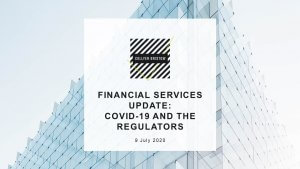- Banking & financial disputes

Longer Reads
Court of Appeal decides litigation privilege does not apply in first televised appeal
4 minute read
Published 18 April 2019
Key information
- Specialisms
- Dispute Resolution
- Services
- Banking & financial disputes
In the recent case of West Ham v E20 [2018] EWCA Civ 2652 the Court of Appeal held that internal discussions between board members, concerning the settlement of a potential claim, were not covered by litigation privilege.
Background
A dispute arose between West Ham and the owners of its stadium, E20, relating to the number of seats West Ham is entitled to use in the stadium. In the underlying proceedings, West Ham asserted that it was entitled to use all the seats in the stadium subject to the necessary permissions being granted by the local authorities. It claimed that its agreement with E20 imposes a duty on the parties to act in good faith and that E20’s refusal to seek the relevant permissions is a breach of that duty.
As part of those proceedings, E20 asserted privilege over six internal documents (each dated 30 January 2017), passing between its board members, on the basis that they were created for the dominant purpose of discussing a commercial proposal for the settlement of the dispute at a time at which litigation was in reasonable contemplation.
West Ham challenged this assertion on the basis that the documents could not have been created for the purpose of obtaining information or advice for use in the litigation and consequently were not covered by litigation privilege.
West Ham applied for an order that the court inspect the documents to determine whether they were in fact covered by privilege.
Decision
Two main issues arose for the court to consider:
- Did litigation privilege apply to the six internal documents; and
- In what circumstances should a court inspect documents to determine privilege?
Did privilege apply?
The main question for the court to consider was whether litigation privilege extends to documents that are concerned with the settlement or avoidance of litigation but do not seek advice or information for the purpose of conducting litigation.
The Court of Appeal decided that litigation privilege does not apply in such situations, overturning the first instance decision of Mr Justice Norris holding that E20 was entitled to claim privilege.
The Court of Appeal considered the recent decision in SFO v ENRC [2018] EWCA Civ 2006 (“ENRC”), which E20 argued had extended the scope of litigation privilege, confirming that the conduct of litigation included its avoidance or compromise.
The court clarified its decision in ENRC and explained that whilst litigation privilege can apply to settlement discussions, it did not remove the requirement that the relevant communication must be for the dominant purpose of obtaining advice or information.
The court emphasised that Lord Carswell’s summary in the landmark decision in Three Rivers v Governor and Company of the Bank of England (No 6) [2004] UKHL 48, still applied. He said:
“…communications between parties or their solicitors and third parties for the purpose of obtaining information or advice in connection with existing or contemplated litigation are privileged, but only when the following conditions are satisfied: (a) litigation must be in progress or in contemplation; (b) the communications must have been made for the sole or dominant purpose of conducting that litigation; (c) the litigation must be adversarial, not investigative or inquisitorial.”
E20 contended that “conducting litigation” encompasses discussions relating to formulating, finalising and setting out a purely commercial settlement proposal.
The court rejected this contention and held that E20 had in fact misinterpreted paragraph (b) (above) to extend the principle that litigation privilege covers communications for the purpose of obtaining advice or information. The court clarified that paragraph (b) is in fact a restriction on that principle. The court went further and held that E20 had not shown any authority which would extend the scope of litigation privilege to purely commercial discussions – even if they related to the conduct of the litigation.
With this in mind, the Court of Appeal allowed West Ham’s appeal and determined that the documents in question were not covered by litigation privilege.
The court did say that litigation privilege could be claimed if, in the document in question, advice or information obtained for the sole or dominant purpose of conducting litigation cannot be disentangled, and disclosure of that document would otherwise reveal the nature of such advice.
Legal advice privilege was not claimed, and did not apply, because the documents did not relate to communications between a lawyer and client. However, it could have been claimed had the documents included legal advice, or a discussion of legal advice, previously given to E20’s board members, by its lawyers.
The Court of Appeal summarised its conclusions as follows:
- Litigation privilege is engaged when litigation is in reasonable contemplation.
- Once litigation privilege is engaged it covers communications between parties or their solicitors and third parties for the purpose of obtaining information or advice in connection with the conduct of the litigation, provided it is for the sole or dominant purpose of the conduct of the litigation.
- Conducting the litigation includes deciding whether to litigate and also includes whether to settle the dispute giving rise to the litigation.
- Documents in which such information or advice cannot be disentangled or which would otherwise reveal such information or advice are covered by the privilege.
- There is no separate head of privilege which covers internal communications falling outside the ambit of litigation privilege as described above.
Therefore, documents regarding discussions of commercial settlement of litigation or contemplated litigation, are only privileged if they also meet the test in paragraph two above.
When can a court inspect documents to determine privilege?
The court also determined that the existing circumstances in which it should inspect a document to test a challenged assertion of privilege were too narrow.
The existing test was that a court could inspect in circumstances in which it was reasonably certain that the test for litigation privilege had been misapplied. The Court of Appeal held that this test was too narrow.
The Court of Appeal held that a court has a wide discretion to inspect documents over which privilege is asserted in order to determine whether the test has been correctly applied. However, it should be cautious about doing so and should be alive to the dangers of looking at documents out of context. When deciding whether to exercise its discretion, the court will consider the nature and number of documents involved and their potential relevance to the issues.
Implications
This case will be of particular interest to companies carrying out internal investigations or discussing the merits of a potential litigation. The Court of Appeal has made it clear that internal discussions regarding a potential, or existing claim, will not attract litigation privilege unless the communication is prepared for the dominant purpose of obtaining advice or evidence in relation to the conduct of litigation. As part of this, the court will consider the rules for disclosure of documents and whether the documents support or are adverse to either parties’ position in the underlying claim. A document which does not impact on the underlying claim will not be disclosable in the first place.
The decision suggests that communications will only attract litigation privilege if they involve a third party, such as an employee (i.e. in the course of an internal investigation) or its lawyers. For example, communications with employees as part of an investigation into a potential or active litigation will be covered by litigation privilege. The presence of a lawyer at a meeting will not be sufficient in itself to attract privilege. It is necessary to demonstrate that advice or information has actually been sought from the lawyer for the communication to be privileged and that it is for the dominant purpose of conducting litigation.
Parties to financial litigation should obtain legal advice before speaking to employees, or third parties, in the course of any investigation. It would also be sensible for a lawyer to be present at any discussions to ensure that they are confined to the context of the litigation.
Related content
Longer Reads
Court of Appeal decides litigation privilege does not apply in first televised appeal
Published 18 April 2019
Associated sectors / services
In the recent case of West Ham v E20 [2018] EWCA Civ 2652 the Court of Appeal held that internal discussions between board members, concerning the settlement of a potential claim, were not covered by litigation privilege.
Background
A dispute arose between West Ham and the owners of its stadium, E20, relating to the number of seats West Ham is entitled to use in the stadium. In the underlying proceedings, West Ham asserted that it was entitled to use all the seats in the stadium subject to the necessary permissions being granted by the local authorities. It claimed that its agreement with E20 imposes a duty on the parties to act in good faith and that E20’s refusal to seek the relevant permissions is a breach of that duty.
As part of those proceedings, E20 asserted privilege over six internal documents (each dated 30 January 2017), passing between its board members, on the basis that they were created for the dominant purpose of discussing a commercial proposal for the settlement of the dispute at a time at which litigation was in reasonable contemplation.
West Ham challenged this assertion on the basis that the documents could not have been created for the purpose of obtaining information or advice for use in the litigation and consequently were not covered by litigation privilege.
West Ham applied for an order that the court inspect the documents to determine whether they were in fact covered by privilege.
Decision
Two main issues arose for the court to consider:
- Did litigation privilege apply to the six internal documents; and
- In what circumstances should a court inspect documents to determine privilege?
Did privilege apply?
The main question for the court to consider was whether litigation privilege extends to documents that are concerned with the settlement or avoidance of litigation but do not seek advice or information for the purpose of conducting litigation.
The Court of Appeal decided that litigation privilege does not apply in such situations, overturning the first instance decision of Mr Justice Norris holding that E20 was entitled to claim privilege.
The Court of Appeal considered the recent decision in SFO v ENRC [2018] EWCA Civ 2006 (“ENRC”), which E20 argued had extended the scope of litigation privilege, confirming that the conduct of litigation included its avoidance or compromise.
The court clarified its decision in ENRC and explained that whilst litigation privilege can apply to settlement discussions, it did not remove the requirement that the relevant communication must be for the dominant purpose of obtaining advice or information.
The court emphasised that Lord Carswell’s summary in the landmark decision in Three Rivers v Governor and Company of the Bank of England (No 6) [2004] UKHL 48, still applied. He said:
“…communications between parties or their solicitors and third parties for the purpose of obtaining information or advice in connection with existing or contemplated litigation are privileged, but only when the following conditions are satisfied: (a) litigation must be in progress or in contemplation; (b) the communications must have been made for the sole or dominant purpose of conducting that litigation; (c) the litigation must be adversarial, not investigative or inquisitorial.”
E20 contended that “conducting litigation” encompasses discussions relating to formulating, finalising and setting out a purely commercial settlement proposal.
The court rejected this contention and held that E20 had in fact misinterpreted paragraph (b) (above) to extend the principle that litigation privilege covers communications for the purpose of obtaining advice or information. The court clarified that paragraph (b) is in fact a restriction on that principle. The court went further and held that E20 had not shown any authority which would extend the scope of litigation privilege to purely commercial discussions – even if they related to the conduct of the litigation.
With this in mind, the Court of Appeal allowed West Ham’s appeal and determined that the documents in question were not covered by litigation privilege.
The court did say that litigation privilege could be claimed if, in the document in question, advice or information obtained for the sole or dominant purpose of conducting litigation cannot be disentangled, and disclosure of that document would otherwise reveal the nature of such advice.
Legal advice privilege was not claimed, and did not apply, because the documents did not relate to communications between a lawyer and client. However, it could have been claimed had the documents included legal advice, or a discussion of legal advice, previously given to E20’s board members, by its lawyers.
The Court of Appeal summarised its conclusions as follows:
- Litigation privilege is engaged when litigation is in reasonable contemplation.
- Once litigation privilege is engaged it covers communications between parties or their solicitors and third parties for the purpose of obtaining information or advice in connection with the conduct of the litigation, provided it is for the sole or dominant purpose of the conduct of the litigation.
- Conducting the litigation includes deciding whether to litigate and also includes whether to settle the dispute giving rise to the litigation.
- Documents in which such information or advice cannot be disentangled or which would otherwise reveal such information or advice are covered by the privilege.
- There is no separate head of privilege which covers internal communications falling outside the ambit of litigation privilege as described above.
Therefore, documents regarding discussions of commercial settlement of litigation or contemplated litigation, are only privileged if they also meet the test in paragraph two above.
When can a court inspect documents to determine privilege?
The court also determined that the existing circumstances in which it should inspect a document to test a challenged assertion of privilege were too narrow.
The existing test was that a court could inspect in circumstances in which it was reasonably certain that the test for litigation privilege had been misapplied. The Court of Appeal held that this test was too narrow.
The Court of Appeal held that a court has a wide discretion to inspect documents over which privilege is asserted in order to determine whether the test has been correctly applied. However, it should be cautious about doing so and should be alive to the dangers of looking at documents out of context. When deciding whether to exercise its discretion, the court will consider the nature and number of documents involved and their potential relevance to the issues.
Implications
This case will be of particular interest to companies carrying out internal investigations or discussing the merits of a potential litigation. The Court of Appeal has made it clear that internal discussions regarding a potential, or existing claim, will not attract litigation privilege unless the communication is prepared for the dominant purpose of obtaining advice or evidence in relation to the conduct of litigation. As part of this, the court will consider the rules for disclosure of documents and whether the documents support or are adverse to either parties’ position in the underlying claim. A document which does not impact on the underlying claim will not be disclosable in the first place.
The decision suggests that communications will only attract litigation privilege if they involve a third party, such as an employee (i.e. in the course of an internal investigation) or its lawyers. For example, communications with employees as part of an investigation into a potential or active litigation will be covered by litigation privilege. The presence of a lawyer at a meeting will not be sufficient in itself to attract privilege. It is necessary to demonstrate that advice or information has actually been sought from the lawyer for the communication to be privileged and that it is for the dominant purpose of conducting litigation.
Parties to financial litigation should obtain legal advice before speaking to employees, or third parties, in the course of any investigation. It would also be sensible for a lawyer to be present at any discussions to ensure that they are confined to the context of the litigation.
Associated sectors / services
- Banking & financial disputes
Need some more information? Make an enquiry below.
Enjoy reading our articles? why not subscribe to notifications so you’ll never miss one?
Subscribe to our articlesMessage us on WhatsApp (calling not available)
Please note that Collyer Bristow provides this service during office hours for general information and enquiries only and that no legal or other professional advice will be provided over the WhatsApp platform. Please also note that if you choose to use this platform your personal data is likely to be processed outside the UK and EEA, including in the US. Appropriate legal or other professional opinion should be taken before taking or omitting to take any action in respect of any specific problem. Collyer Bristow LLP accepts no liability for any loss or damage which may arise from reliance on information provided. All information will be deleted immediately upon completion of a conversation.
Close








































































